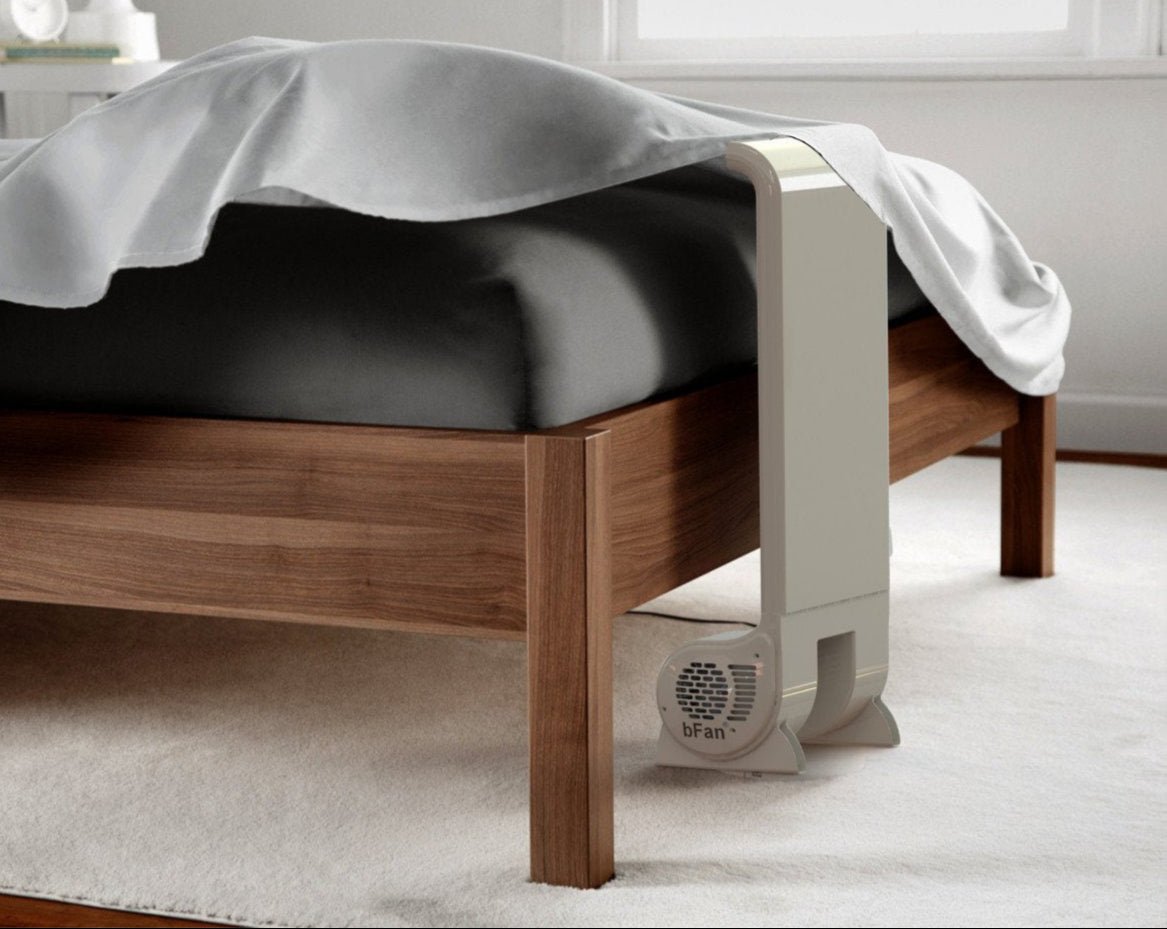Dealing with Menopause Night Sweats: How to Prevent Dehydration | Bedfans USA
by Hannah Tompkins
Menopause is a natural occurrence in a woman's life. However, it marks the end of her reproductive stage and comes with various symptoms such as night sweats, hot flashes, vaginal dryness, and mood swings. Menopause night sweats can be particularly challenging, causing poor quality sleep and excessive sweating, which may lead to dehydration. This blog post will discuss how menopause night sweats lead to dehydration and provide tips on how to prevent it.
1. What are Menopause Night Sweats?
One of the most common symptoms of menopause is night sweats, also known as sleep hyperhidrosis. It is characterized by excessive sweating that occurs during the night, usually accompanied by hot flashes. Menopause night sweats occur due to hormonal changes that result in the widening of blood vessels, making it difficult for the body to regulate temperature. Night sweats can make sleeping difficult, preventing the body from hydration.
2. What are the Effects of Menopause Night Sweats on Dehydration?
Menopause night sweats can lead to dehydration as the body loses water through sweat production and urination, which leads to the loss of electrolytes such as sodium, potassium, and calcium. Dehydration occurs when there's an insufficient amount of water in the body. This can cause a range of symptoms such as dry mouth, headaches, fatigue, and dizziness. It can also lead to more severe complications if left untreated.
3. How to Prevent Dehydration from Menopause Night Sweats.
One of the most effective ways to prevent dehydration from menopause night sweats is to stay hydrated. Drinking water regularly during the day can reduce the effects of dehydration at night. Also, reducing caffeine, alcohol, and smoking can help control menopause night sweats. Drinking herbal teas and consuming foods high in water content such as fruits and vegetables can help increase hydration.
4. Cooling Techniques and Lifestyle Changes
Cooling techniques such as wearing breathable cotton clothing, using a fan, or having a cold bath or shower can help reduce night sweats. Sleeping on a bed fan like the Bedfan, which can reduce the temperature around the sleeper's core and reduce sweating, is also recommended. Making sure the bedroom is cool and well-ventilated can also help. Lifestyle changes such as exercise, maintaining a healthy diet, getting enough sleep, and reducing stress levels can help relieve menopause symptoms such as night sweats and reduce dehydration.
5. When to Seek Medical Attention
Consulting a healthcare professional is essential if the symptoms of dehydration persist, especially if the symptoms are severe. Medical intervention can be crucial in managing severe dehydration, such as intravenous fluids, which replace electrolytes and water in cases of severe dehydration.
In conclusion, menopause night sweats can be the hallmark of the menopausal stage and can lead to dehydration. Drinking enough water, reducing caffeine and alcohol intake, and introducing cooling techniques such as the Bedfan can help prevent dehydration caused by night sweats. No doubt, menopause is challenging and can come with various symptoms, but you don't have to face them alone. Consistent medical check-ups, a healthy lifestyle, and a good support system can help manage menopause symptoms and promote overall health.
1. What are Menopause Night Sweats?
One of the most common symptoms of menopause is night sweats, also known as sleep hyperhidrosis. It is characterized by excessive sweating that occurs during the night, usually accompanied by hot flashes. Menopause night sweats occur due to hormonal changes that result in the widening of blood vessels, making it difficult for the body to regulate temperature. Night sweats can make sleeping difficult, preventing the body from hydration.
2. What are the Effects of Menopause Night Sweats on Dehydration?
Menopause night sweats can lead to dehydration as the body loses water through sweat production and urination, which leads to the loss of electrolytes such as sodium, potassium, and calcium. Dehydration occurs when there's an insufficient amount of water in the body. This can cause a range of symptoms such as dry mouth, headaches, fatigue, and dizziness. It can also lead to more severe complications if left untreated.
3. How to Prevent Dehydration from Menopause Night Sweats.
One of the most effective ways to prevent dehydration from menopause night sweats is to stay hydrated. Drinking water regularly during the day can reduce the effects of dehydration at night. Also, reducing caffeine, alcohol, and smoking can help control menopause night sweats. Drinking herbal teas and consuming foods high in water content such as fruits and vegetables can help increase hydration.
4. Cooling Techniques and Lifestyle Changes
Cooling techniques such as wearing breathable cotton clothing, using a fan, or having a cold bath or shower can help reduce night sweats. Sleeping on a bed fan like the Bedfan, which can reduce the temperature around the sleeper's core and reduce sweating, is also recommended. Making sure the bedroom is cool and well-ventilated can also help. Lifestyle changes such as exercise, maintaining a healthy diet, getting enough sleep, and reducing stress levels can help relieve menopause symptoms such as night sweats and reduce dehydration.
5. When to Seek Medical Attention
Consulting a healthcare professional is essential if the symptoms of dehydration persist, especially if the symptoms are severe. Medical intervention can be crucial in managing severe dehydration, such as intravenous fluids, which replace electrolytes and water in cases of severe dehydration.
In conclusion, menopause night sweats can be the hallmark of the menopausal stage and can lead to dehydration. Drinking enough water, reducing caffeine and alcohol intake, and introducing cooling techniques such as the Bedfan can help prevent dehydration caused by night sweats. No doubt, menopause is challenging and can come with various symptoms, but you don't have to face them alone. Consistent medical check-ups, a healthy lifestyle, and a good support system can help manage menopause symptoms and promote overall health.
Share

